The Art and Science of Measure Numbering

Rob Prester (Pf, New York, NY) opened an E-mail dialog within the ACMP Board and Council members by posing this question: “Does ACMP have any available info about standardized guidelines for measure numbering?”
Board Member Susie Ikeda (Vn, Cambridge, MA) responds: It may seems silly, but consistent measure-numbering is actually a meaningful and not-always-obvious issue, particularly when people show up at a workshop with their own parts numbered using one convention and others show up having used different conventions. (Do pickups count as a bar? How do you count first endings?) Being off by even one bar prohibits the group from being able to start at exactly the most efficient place.
I’m active at the Bennington Chamber Music Conference (cmceast.org). For decades we’ve used a generally successful measure numbering convention that seems to match most pre-printed numbering conventions. Thanks to Eve and Don Cohen we also have a vast listing of measure number totals (by movement), The Cohens meticulously and brilliantly compiled this list, manage, and generously share it. You’ll find the numbering guidelines, and within that you’ll find a link to the measure number totals page by clicking on the link http://www.cmceast.org/downloads/MeasureCounts.pdf (Updated 2024). Of course, if one never has to stop, and never has to rehearse anything, then the numbers are indeed pointless!
Advisory Council Member Missy Goldberg (Vn/Va, Chevy Chase, MD) concurs: If you haven’t tried numbering measures, you may not appreciate the value of The Cohen’s reference list of measure number totals. Even if you follow the conventions, it’s very easy to make a mistake — either by missing some subtle oddity of the music or, more likely, by simply miscounting. Knowing the actual number of measures in the movement makes it easy to see if you have counted correctly.
Advisory Council Member Ted Rust (Ob, EH, Berkeley, CA) writes: According to Brian Blood, www.dolmetsch.com/musictheory3.htm#barnumbers, bar lines date from the seventeenth century, and rehearsal letters began appearing in orchestral scores and parts in the early 19th century. My own guess is that they were picked up by publishers from conductors’ own markings jotted on manuscripts during rehearsals when they needed to tell their players where to start. He doesn’t say if bar numbers followed soon after.
Letters certainly become less useful and measure numbers more so as compositional style has moved away from the clear, regular divisions of classical and early romantic music and a more detailed navigation system was needed. Debussy’s Pelléas et Mélisande, for example, is hell to rehearse with its rehearsal NUMBERS instead of letters (“Violins, play what you have nineteen bars after eighteen in Part III.” Huh??
My Dover facsimile of an “early” edition of Dvorák’s Serenade for Winds, Opus 44 (1878) has measure numbers AND rehearsal letters whereas his Serenade for Strings, Opus 22 (1875) has neither! (Maybe wind players needed more help, or maybe the practice was just being introduced.) Measure numbering was still not commonplace before the mid-20th century. For example, the Peters Bach editions from the 1930s have rehearsal letters but no measure numbers, whereas Henle editions from the 1970s have numbers only.
I’d love to dig into a good music library !
Advisory Council Member Jerry Fischbach (Vn, Glen Dale, MD) writes: This is indeed an interesting and deceptively complex question. The music publishing industry has certainly been dealing with this question for at least a century. The Bennington numbering rules are outstanding! Models of concision and thoroughness. Just for the record, I explored two of my publishing sources as follows:
Composer/arranger George A. Speckert, an editor at Baerenreiter, (and former student of mine) defines the Baerenreiter conventions
The first full measure is “1” – , do not count upbeats.
The first and second ending brackets are numbered “a” and “b” ( i.e. 16a, 16b.) This will only be printed if the bracket is at the beginning of a line. No special treatment for repeats and jumps — even if the repeat is in the middle of a measure.
In cases where one voice is notated with a repeat and another without (i.e. different phrase endings), both numbers are noted, like 17 (25).
More Articles
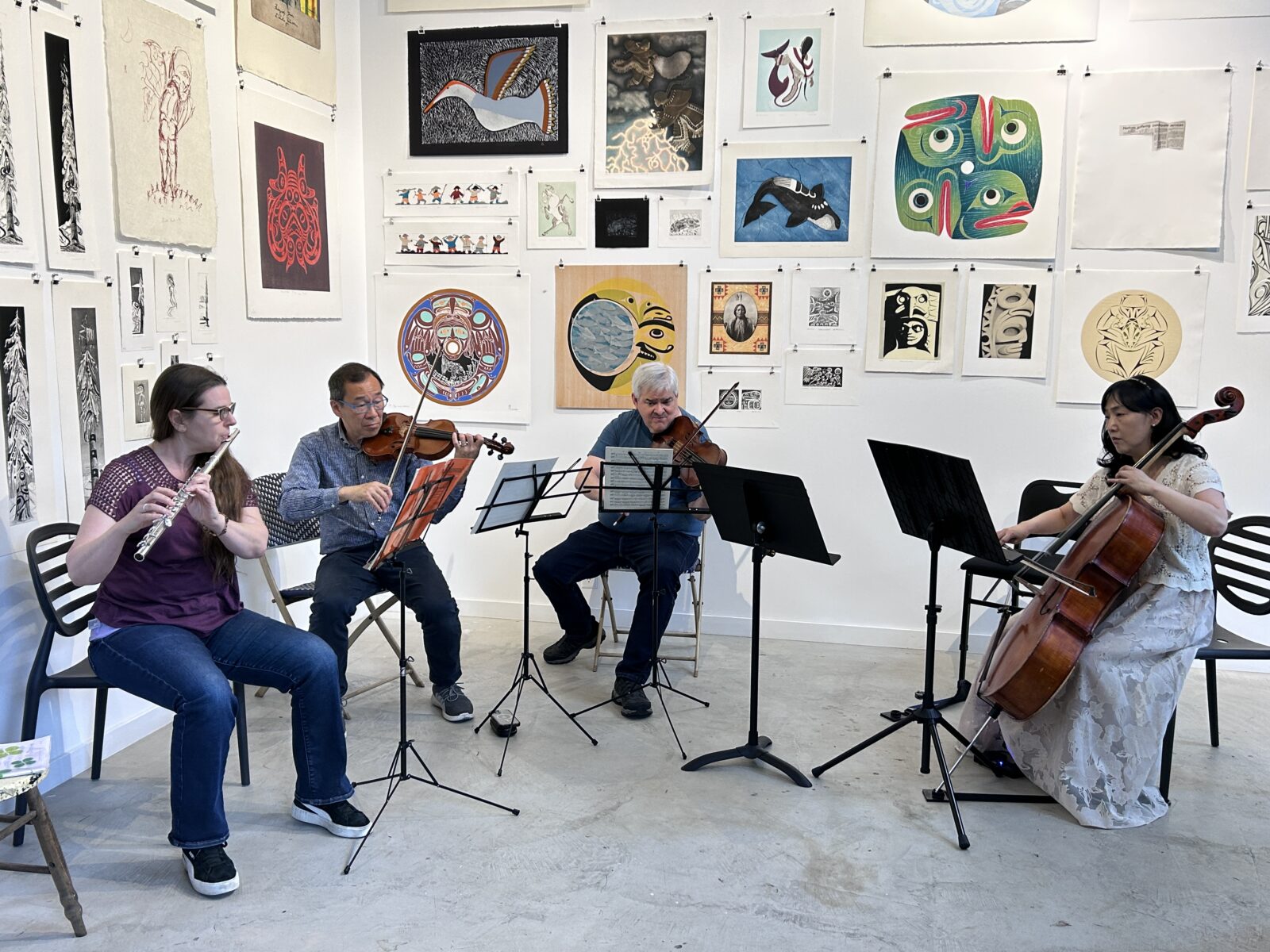
And the Play-Ins continued in June!
With ACMP's rapidly growing community of chamber musicians, Play-In season is never over! Read about two recent Play-Ins in June.Read More ↗
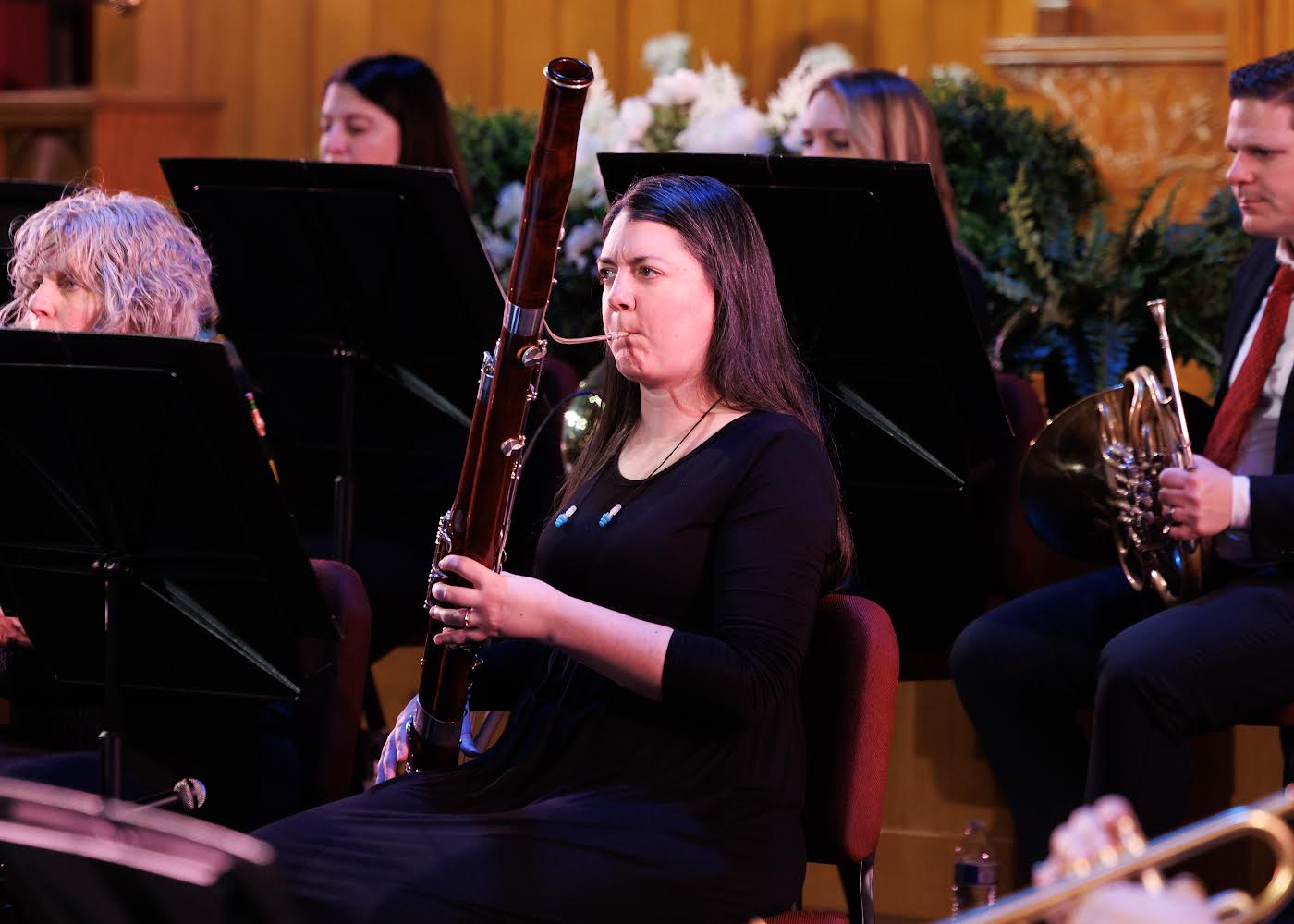
2025 News of Note Puzzle Contest Winner and Answers
Congratulations to bassoonist Jessi Vandagriff for winning this year's News of Note puzzle contest. And read more for the great puzzle answer reveal!Read More ↗
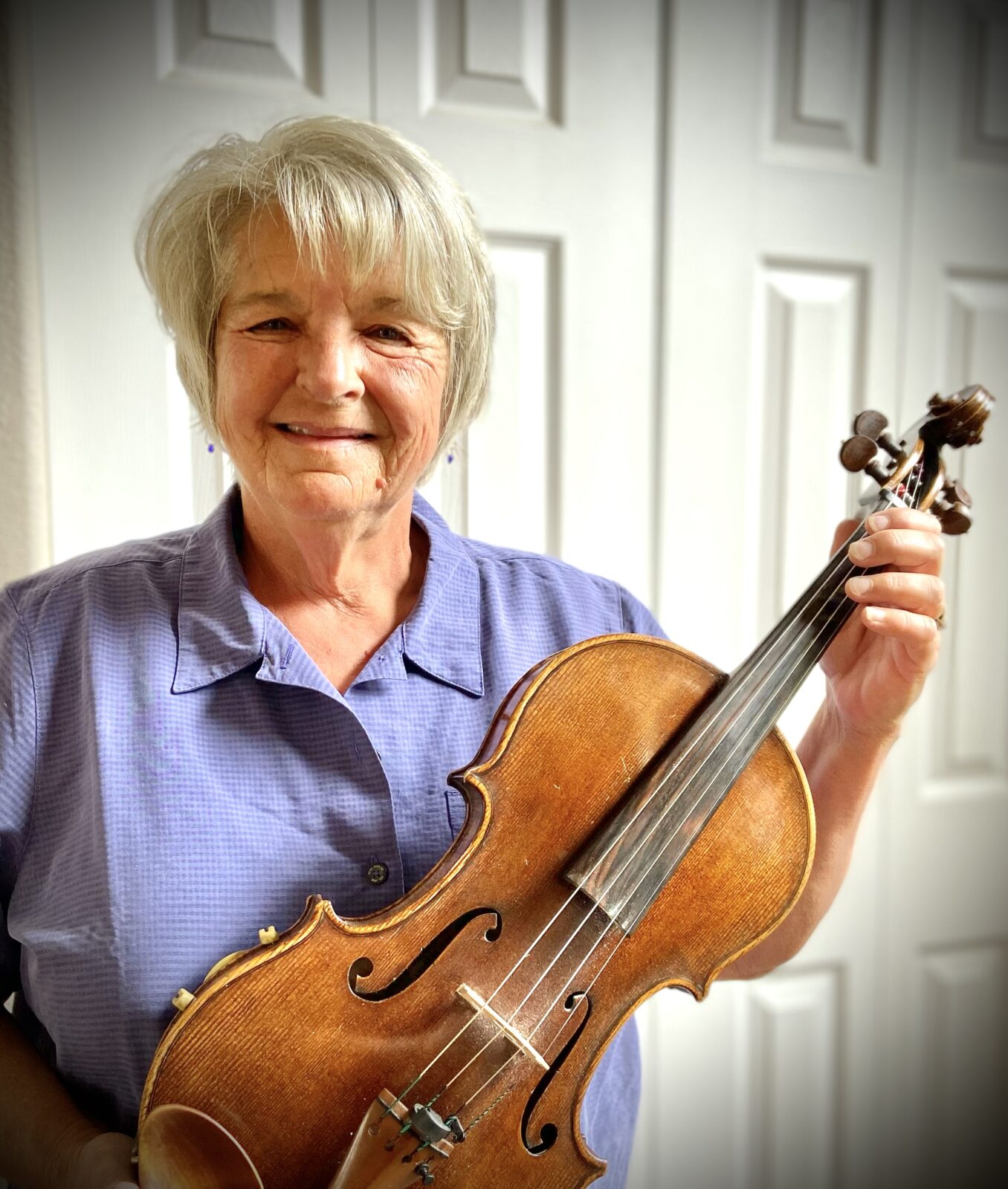
Member of the Month, July 2025: Cheryl Hite
The ranks of ACMP members are filled with professionals who began their college careers with the intent of pursuing music for a living, then for whatever reason moved into another career. Colorado-based violist Cheryl Hite is one of those musicians. A native of Detroit, she enrolled at Indiana University in the 1970s as a double major – biology and viola performance. Read her interview with ACMP Board Chair Bob Goetz.Read More ↗
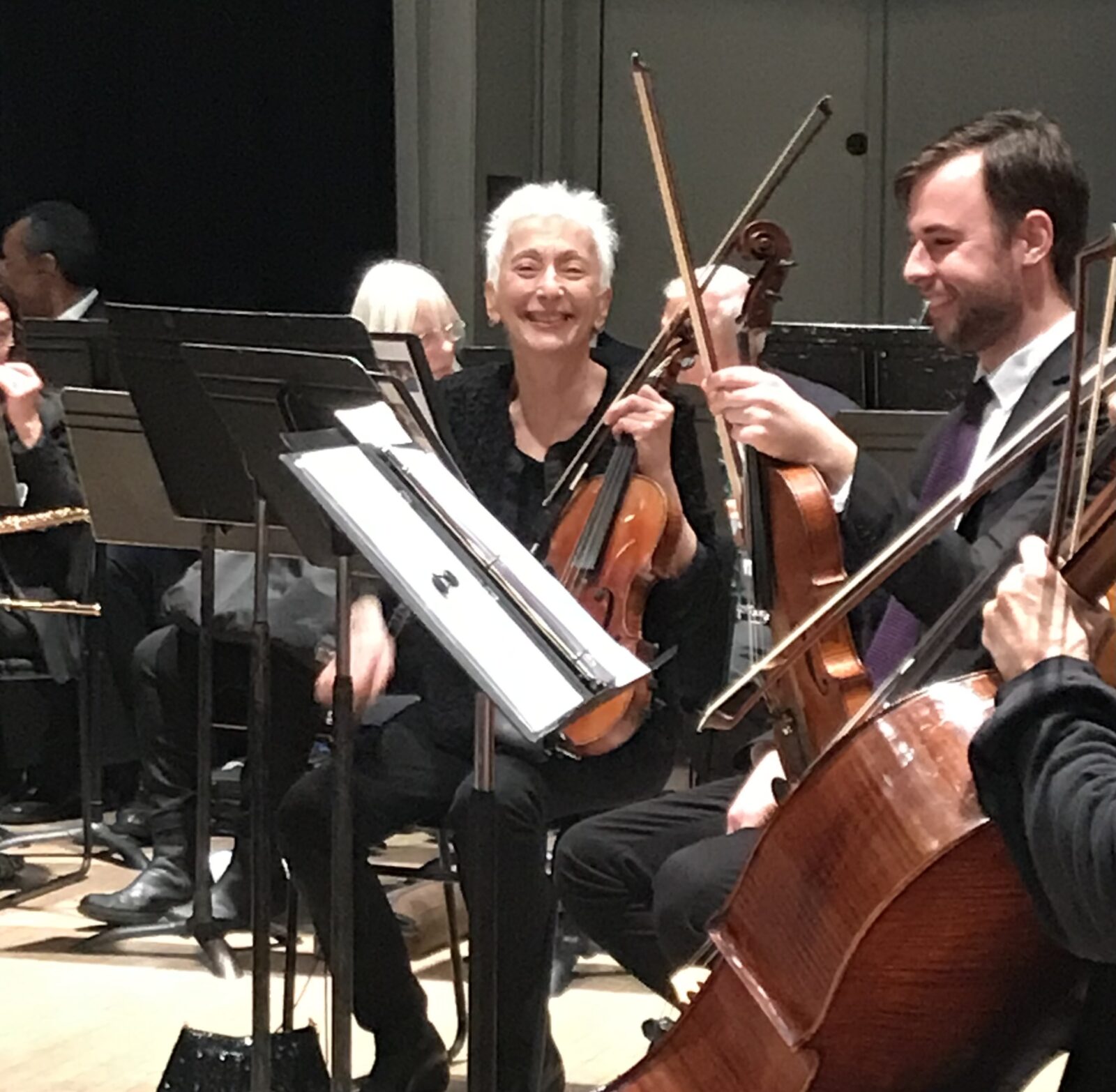
The day my quartet played out of tune and almost got our host evicted
Chamber music can be a high stakes activity - play a bit out of tune, and your host could end up on the street. Read about one such close call in New York City.Read More ↗
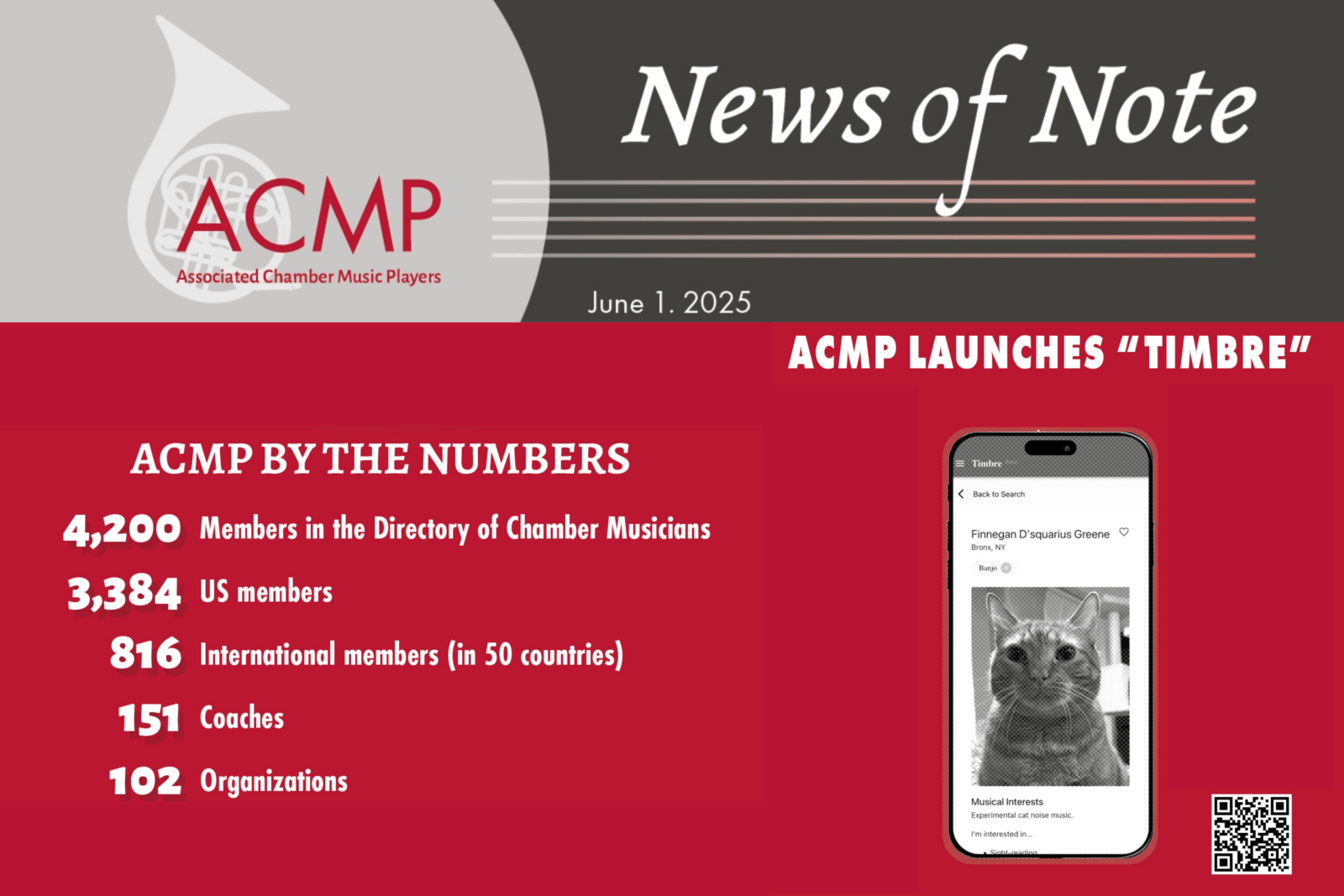
News of Note 2025
It’s that time of year again! The web version of the 2025 News of Note is live, featuring updates from the past year—and some fun extras, including everyone’s favorite: a new puzzle. (Submit your answers by July 1!)Read More ↗
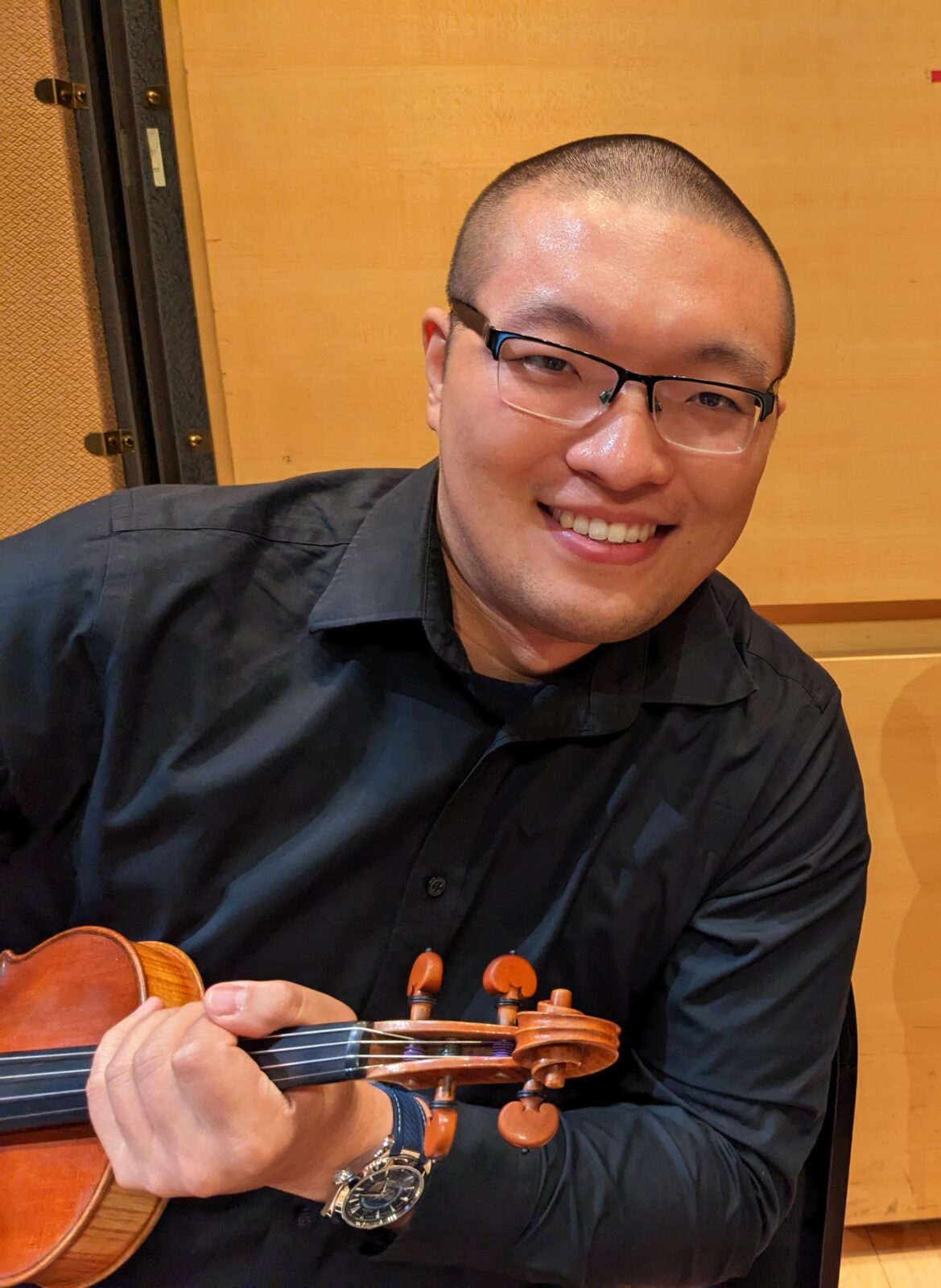
Member of the Month, June 2025: Frank Song
Frank Song, 28, may work remotely as a software engineer, but when it comes to music and the arts, he is all about being there, in person. With the flexibility to travel in his work, he seeks out concerts or museum exhibits in cities far beyond his home in Toronto. And while he’s at it, he takes along his violin to play chamber music. We caught up with Frank on a recent visit to New York, where he played chamber music with people he found through ACMP.Read More ↗

Seasoning for the Seasons
With a taste for adventure and a pinch of whimsy, follow ACMP cellist Tom Cappaert’s lead: stage a chamber concert in a Quito pizza parlor.Read More ↗
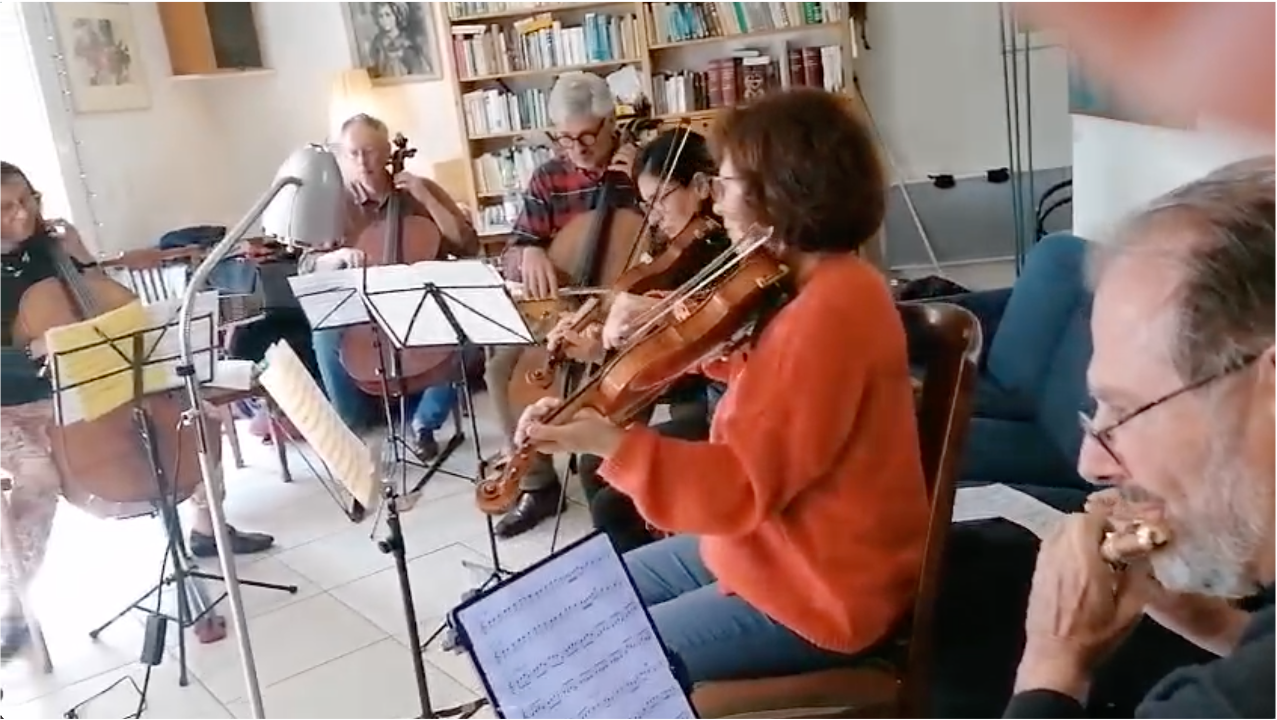
May 2025 Play-In Highlights!
Highlights from just a few Play-Ins during National Chamber Music Month!Read More ↗
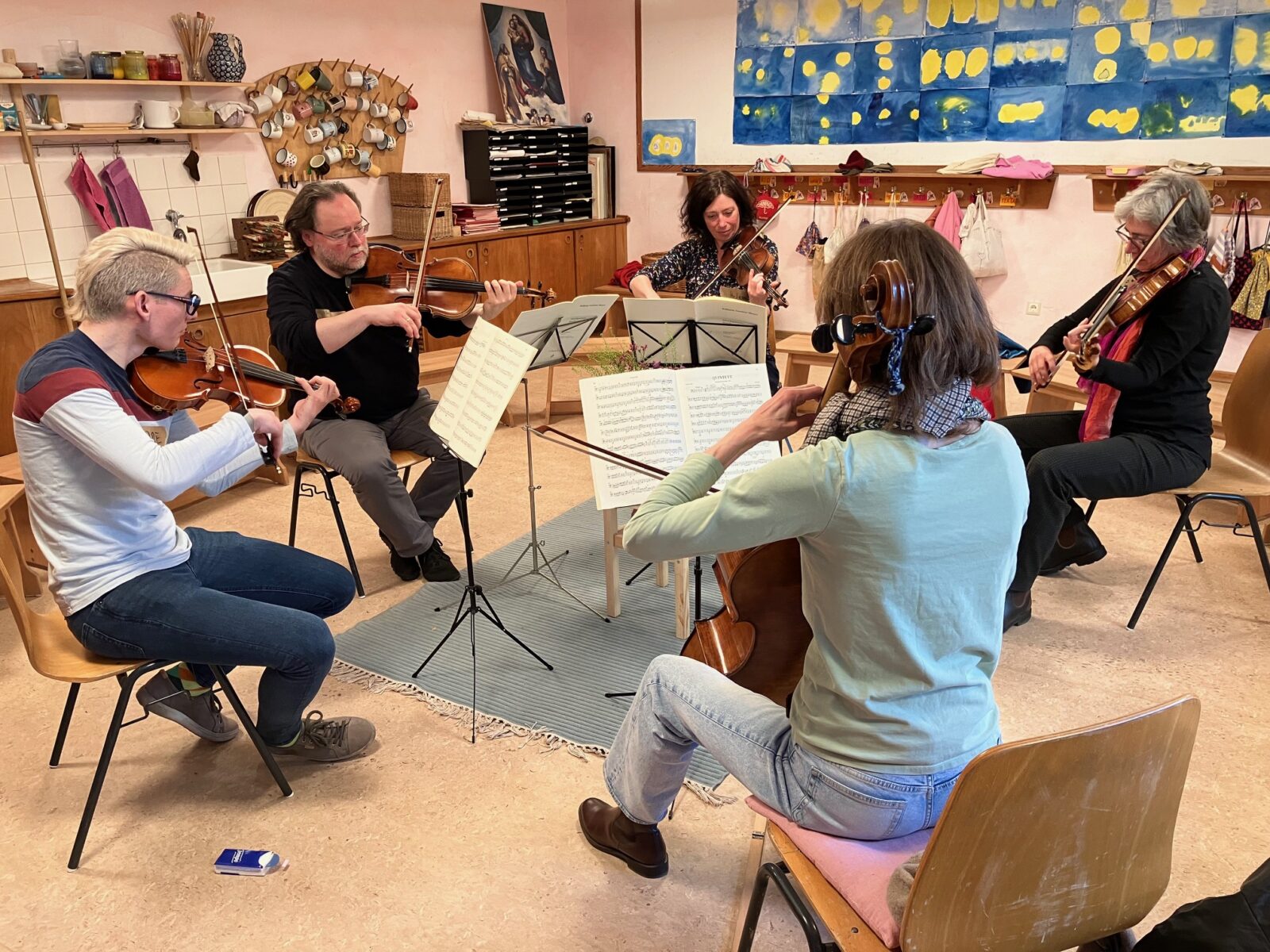
Play-In Report: Berlin Kammermusik Liste
Michael Knoch runs the Berlin Kammermusik Liste, and represents ACMP as its International Ambassador in Germany. He holds at least two Play-Ins a year, and has a unique gift for organizing large Play-Ins with a mix of all instruments and voice. Read about his second Play-In of 2025!Read More ↗
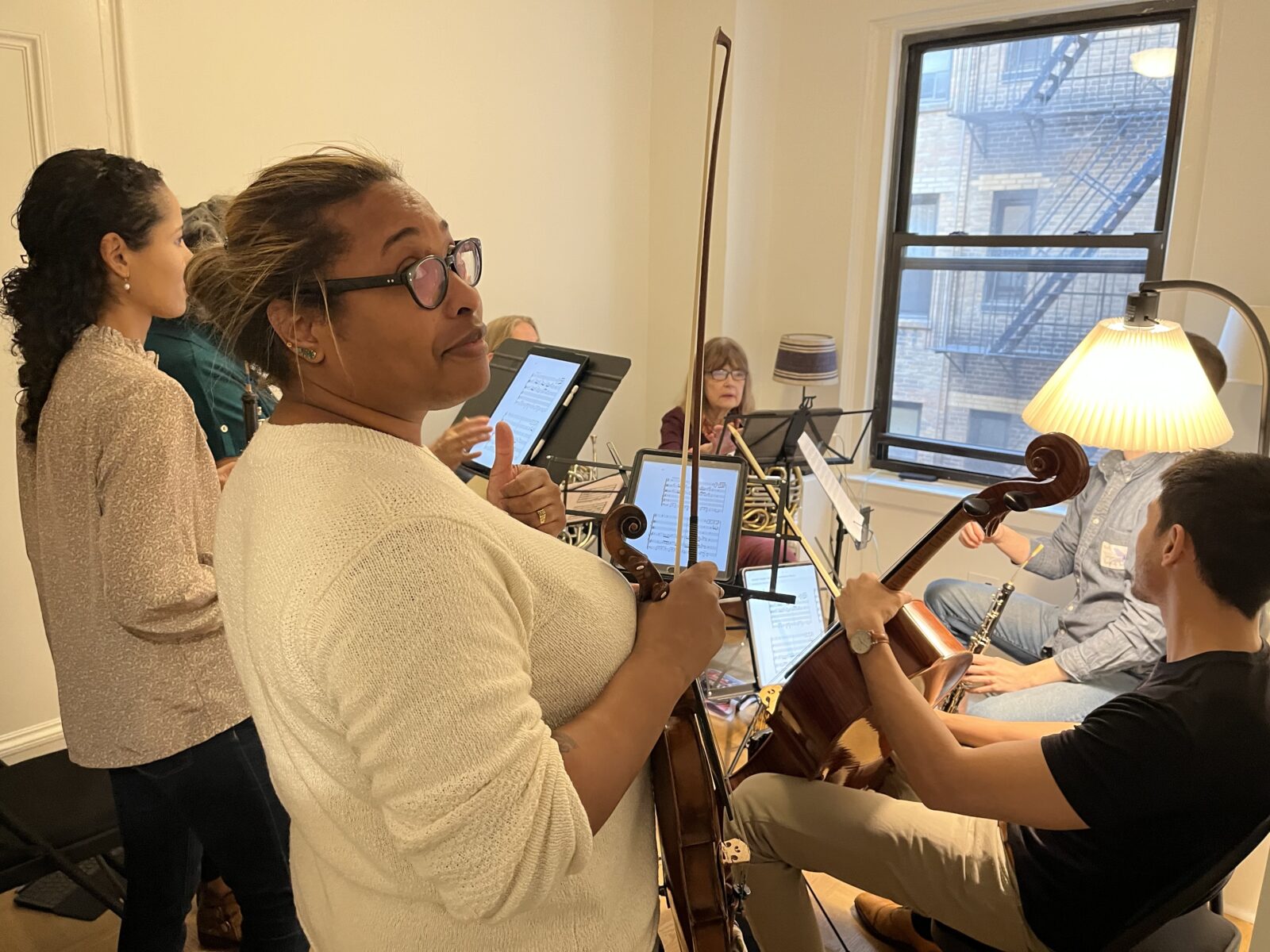
2025 Worldwide Play-In Events
May is Chamber Music Month! Celebrate with Play-Ins all month long, and during the Worldwide Play-In Weekend: May 16-18, 2025. See this list of Play-Ins in the ACMP Directory to date, and keep checking it for updates.Read More ↗
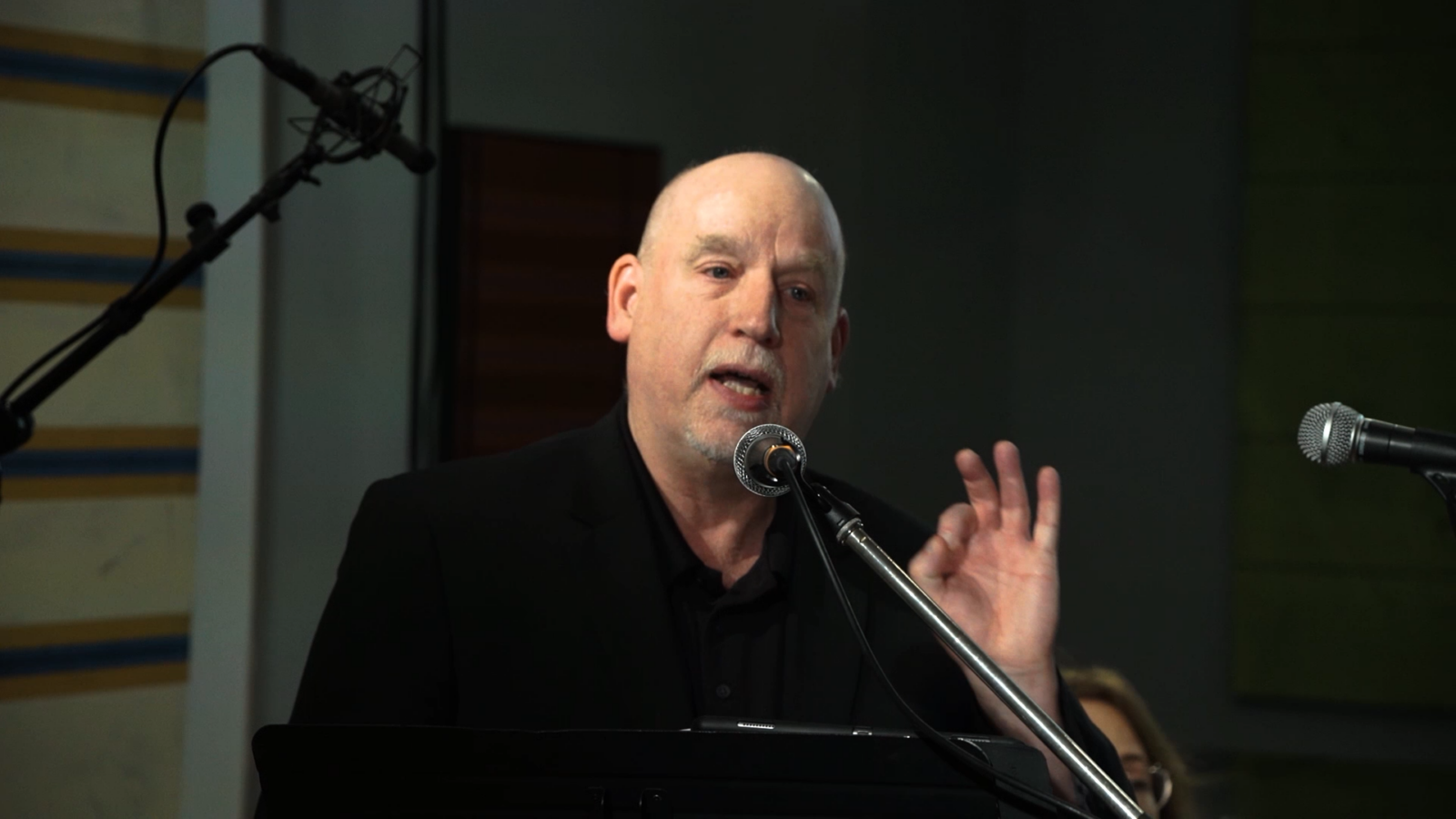
New Video: Ravel’s String Quartet with Cal!
Cal Wiersma is back, sharing ensemble tips and tricks through the lens of Ravel’s String Quartet.Read More ↗
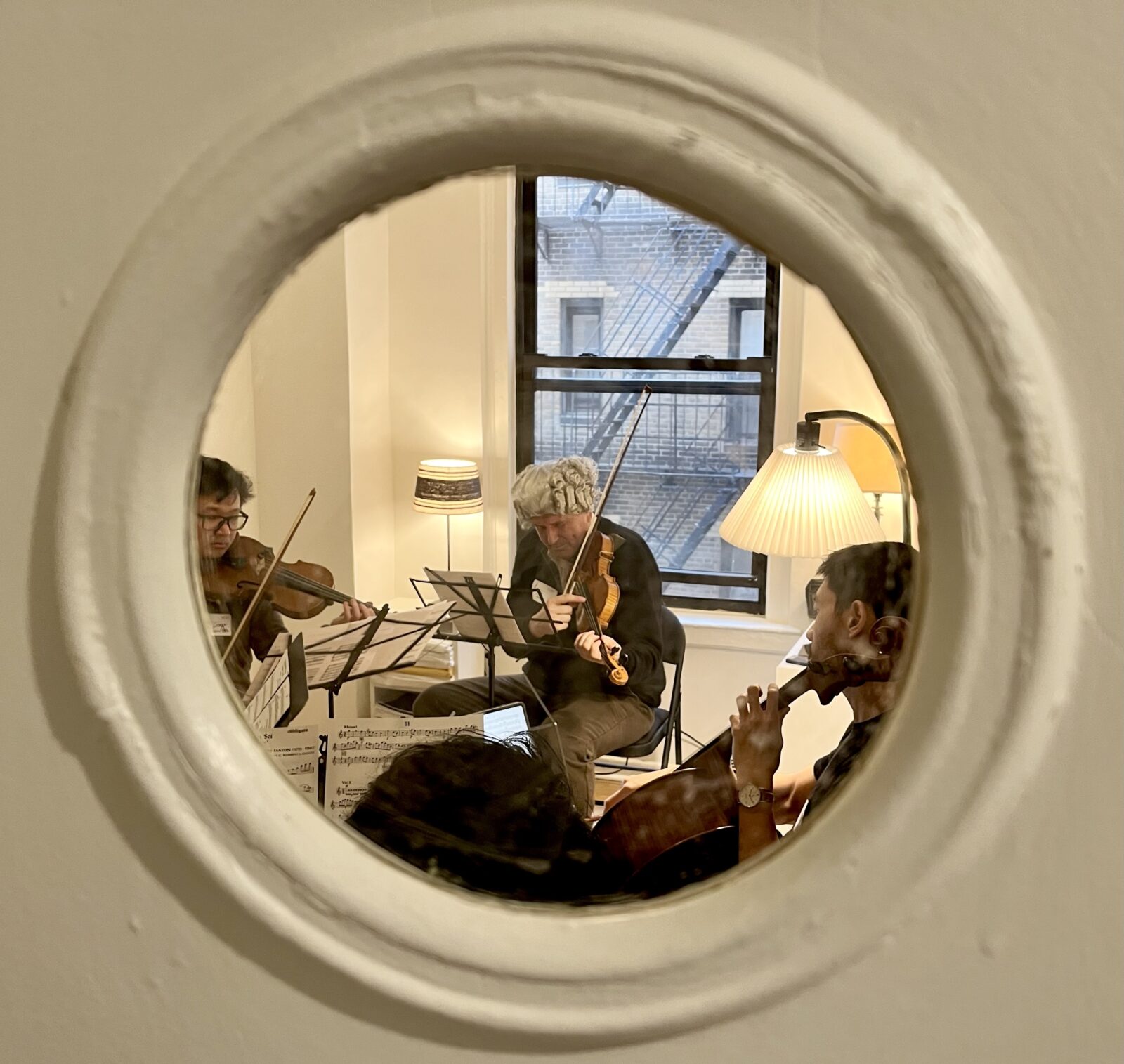
Here’s looking at you, Joe!
One day before Haydn's 293rd birthday - a Haydn party happened in Manhattan. Haydn himself appeared (in the form of ACMP violinist, board member and host, Bob Goetz.) 30 players participated - one third of the participants were wind and brass players! Read about the party and get some fun repertoire ideas!Read More ↗
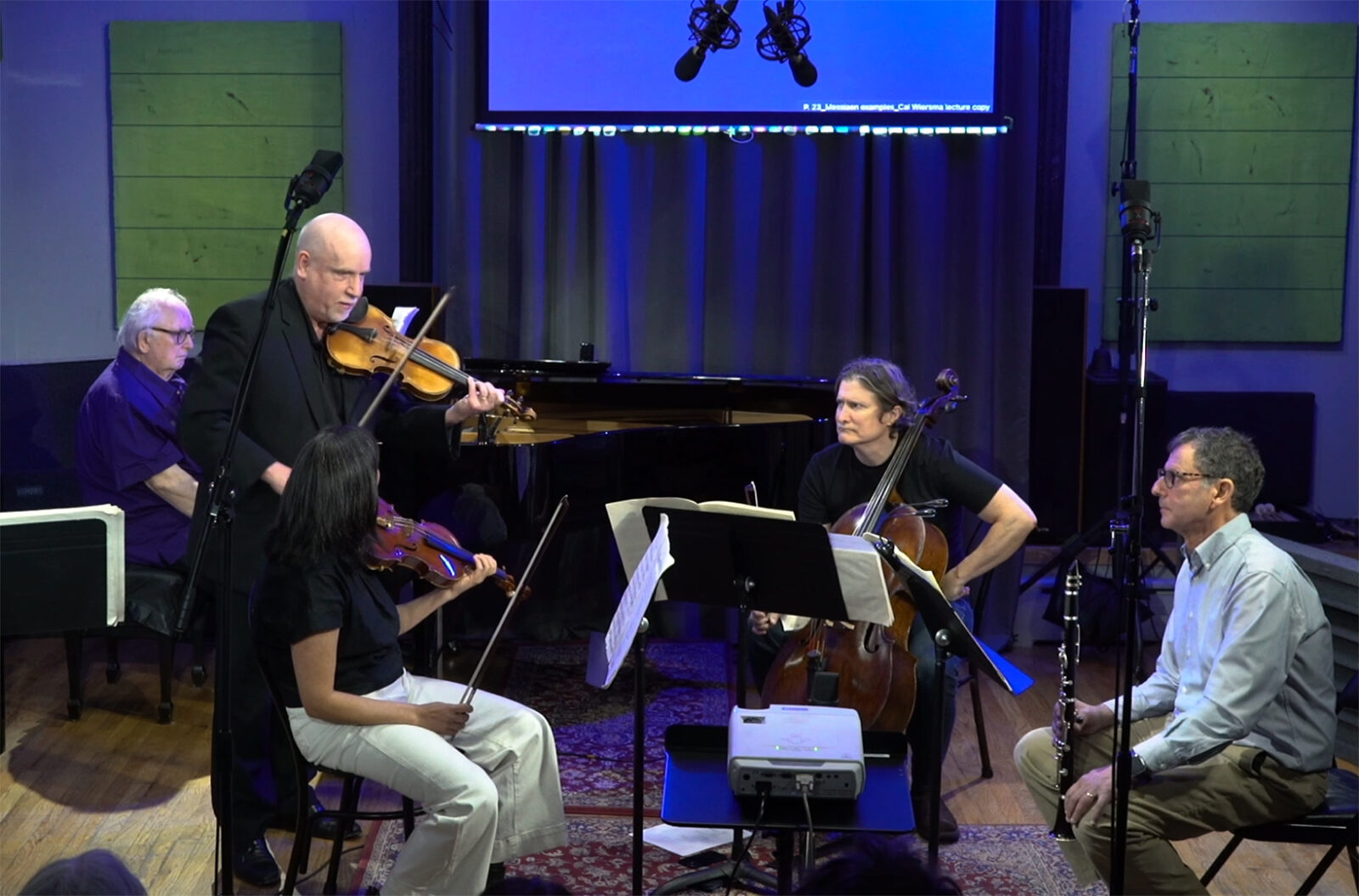
Cal Wiersma Class: Rehearsal Techniques in Ravel’s String Quartet
Back by popular demand - ACMP is offering another live and live-streamed class with violinist and chamber music coach Cal Wiersma on chamber music rehearsal techniques in Ravel's String Quartet on Sunday, April 6 at 3pm ET.Read More ↗
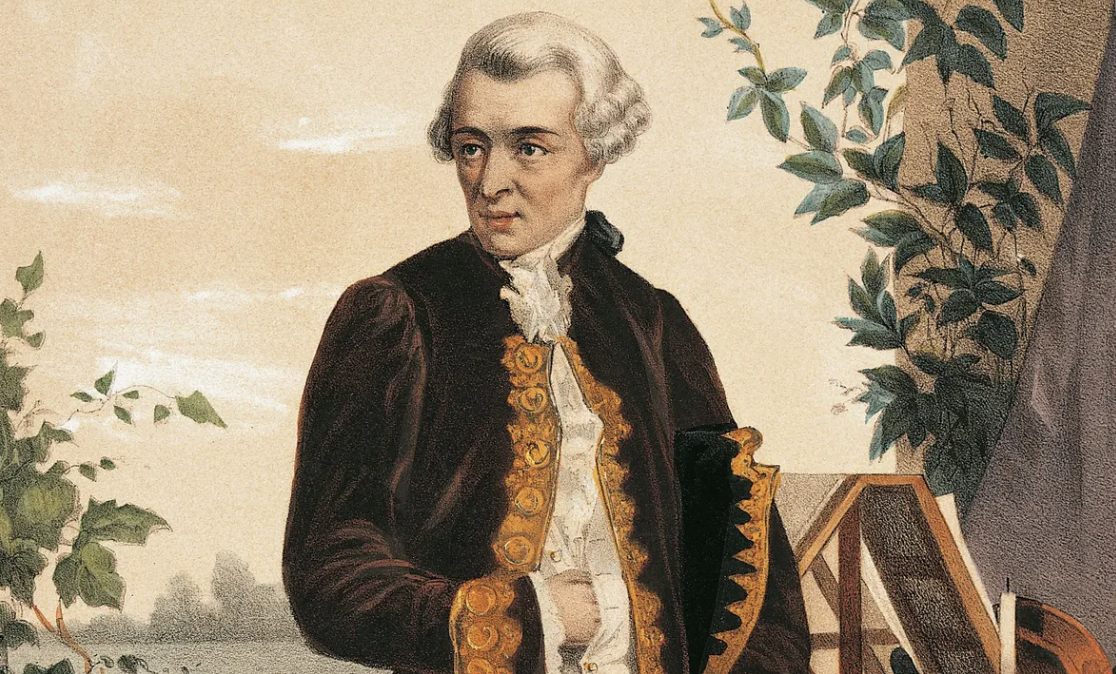
The 2025 ACMP Haydn Challenge
March 31 is Joseph Haydn’s birthday! It’s also a fabulous occasion to celebrate his contributions to the world of chamber music with a gift in his honor to ACMP…Throughout the month of March, we hope you will participate in the ACMP Haydn Challenge.Read More ↗
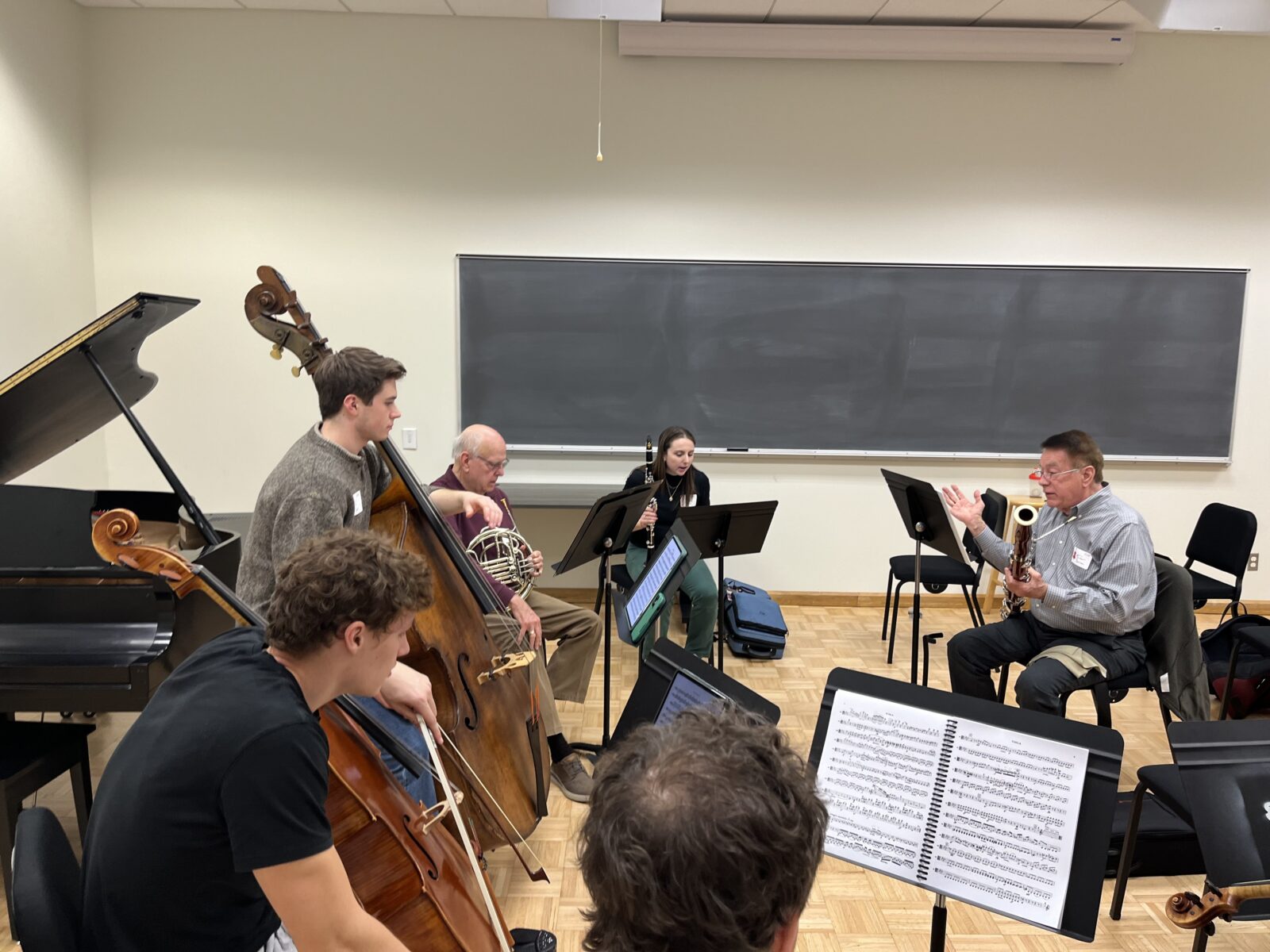
Post-CMA Conference Recap 2025
The CMA Conference in Houston—four days of nonstop music, inspiring connections, a jam-packed ACMP Play-In and a surprise woodwind trio at the Menil Collection!Read More ↗
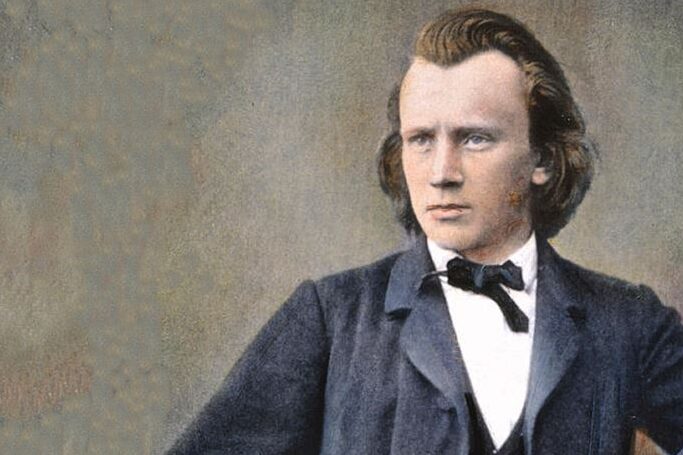
New Listening Club Video: Exploring Brahms Piano Quintet in f minor, Op. 34
Out now! Watch the video recording from our recent Listening Club event with Peter Fender returning and going through Brahms’ Piano Quintet in F minor, Op. 34—an arrangement of an arrangement.Read More ↗
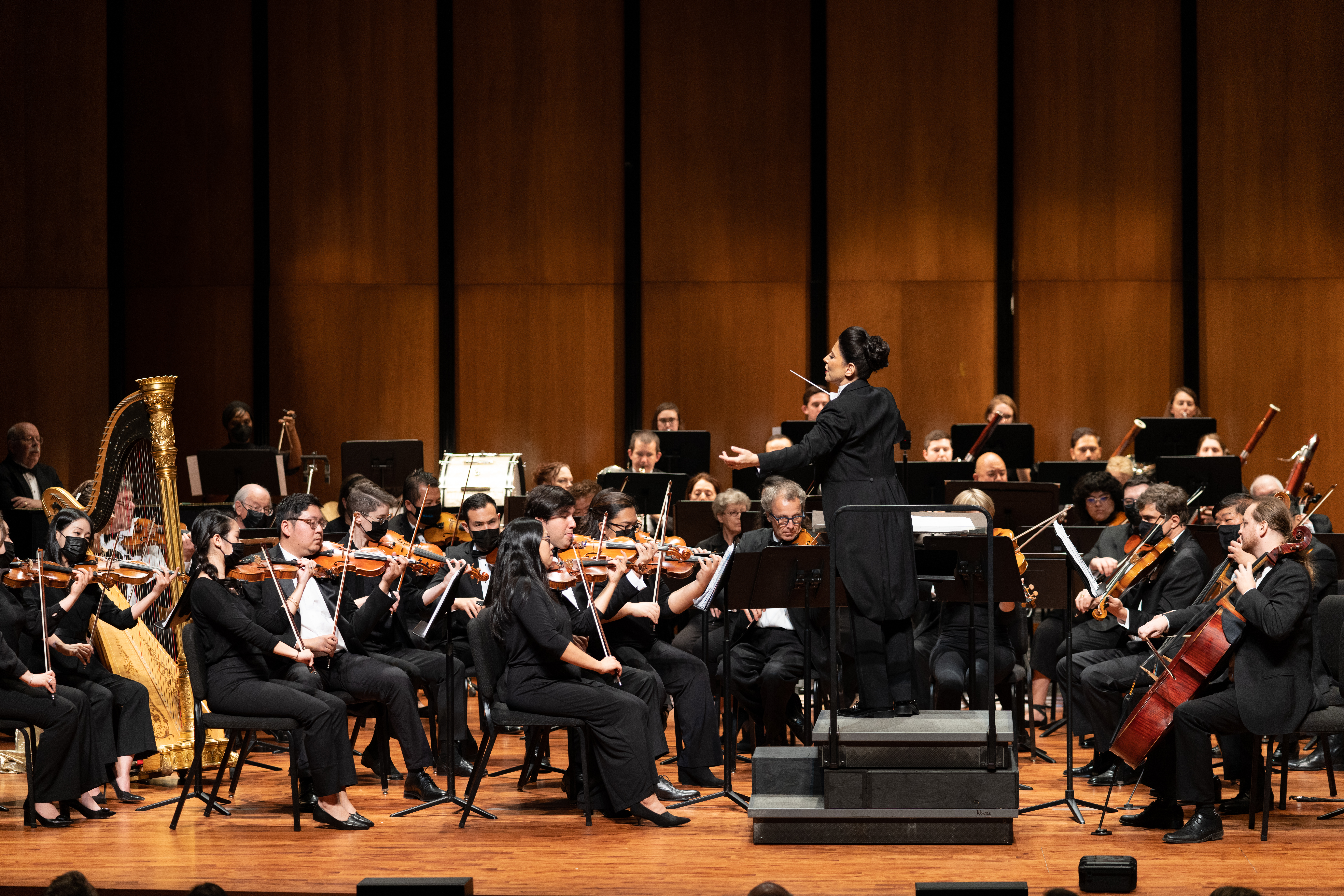
An orchestra born out of one woman’s dream
Over the course of its 25 years, the Texas Medical Center Orchestra has earned national acclaim in becoming a fixture of the Houston musical community. But how it got to this point can be traced to the vision of one woman—Libi Lebel, who moved to the Houston area in the late 1990s as an aspiring conductor and simply wanted to find a group to lead.Read More ↗
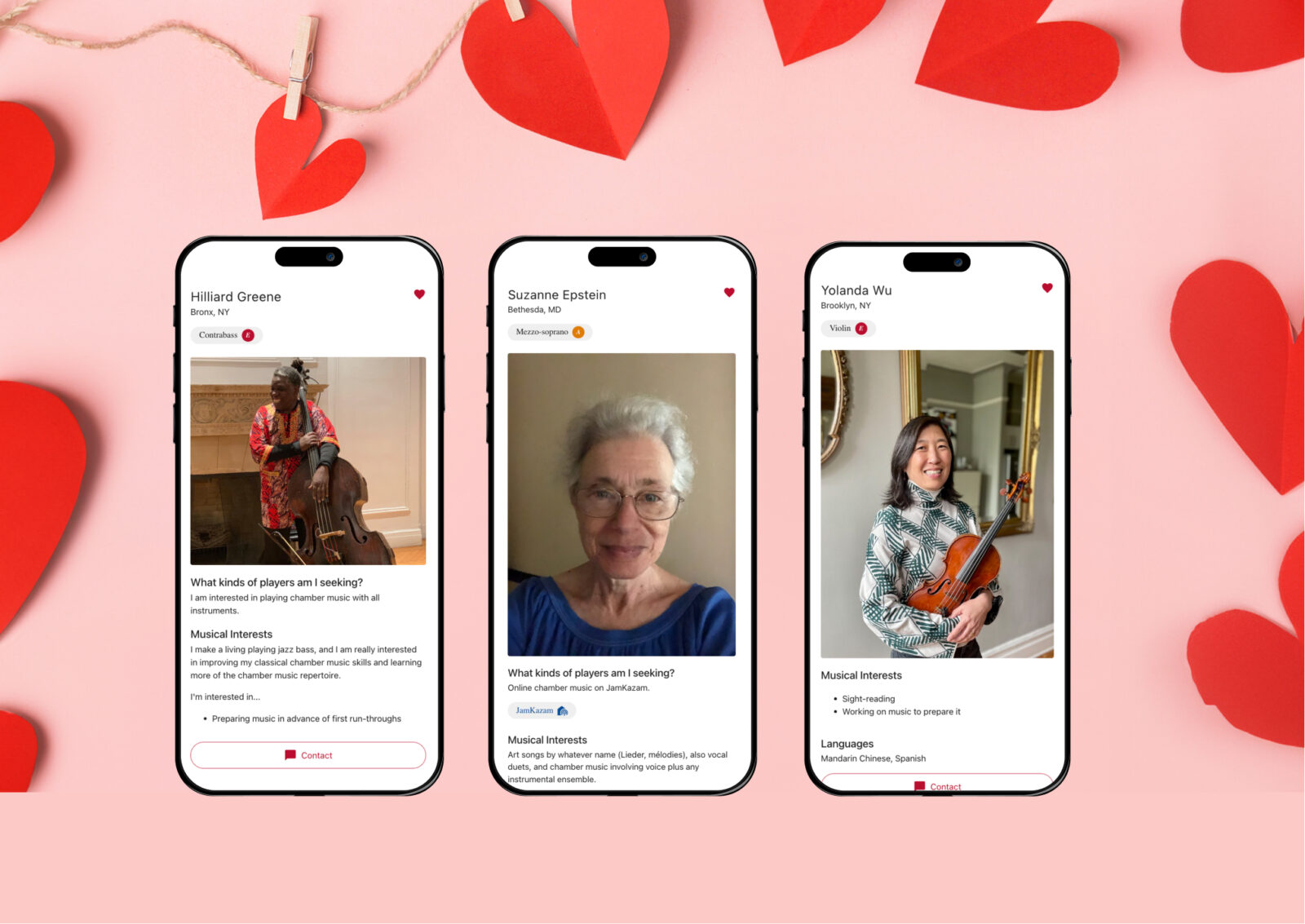
And it’s launched! The new Timbre web app
Just in time for Valentine's Day, ACMP is launching its new Timbre web app. Here's how to find it - and some handy tips on how to use it, too.Read More ↗
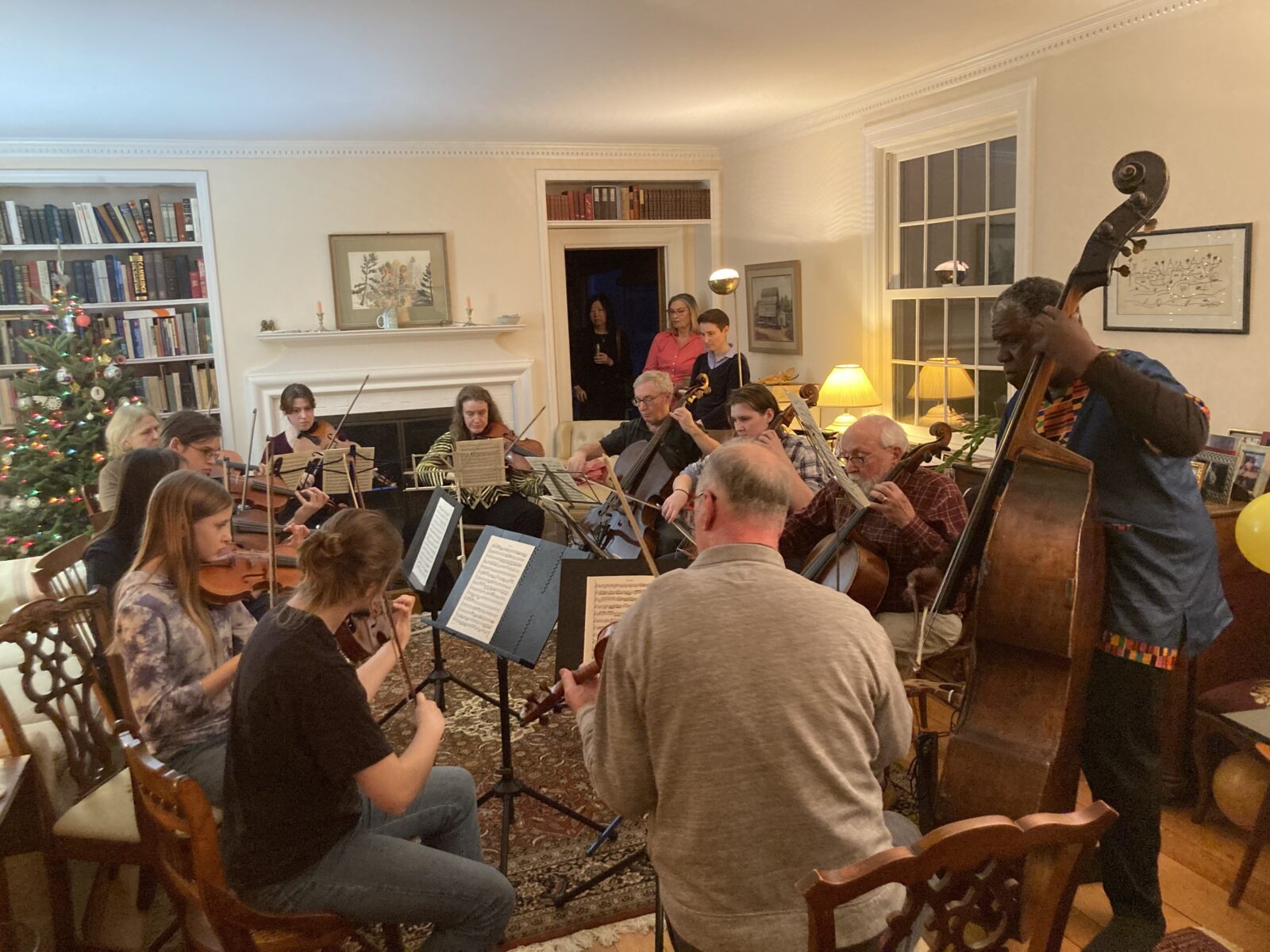
Celebrating the holidays with chamber music!
Looking back on a festive holiday season,ACMP was especially inspired this year by how many of our members made music together in their homes as part of their celebrations. ACMP Executive Director Stephanie Griffin attended two of these, and a special jazz party on New Year's Day.Read More ↗
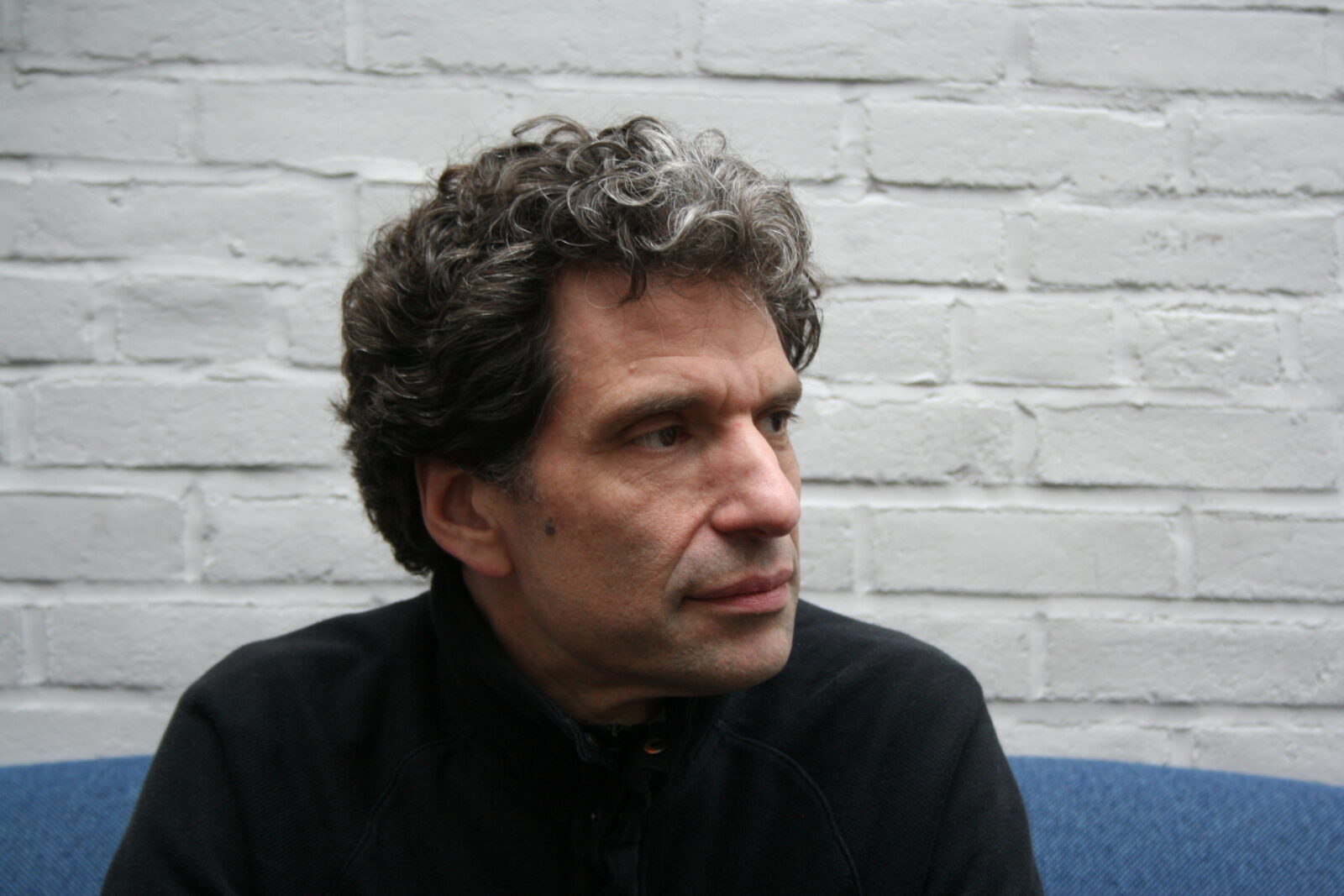
ACMP member discount on Seth Knopp’s new course “Music Speaks”
Join pianist and Yellow Barn Artistic Director Seth Knopp in New York City for a unique new music appreciation course "Music Speaks" on February 22 and 23 and March 1 and 2. And enjoy a 20% discount as a member of ACMP!Read More ↗